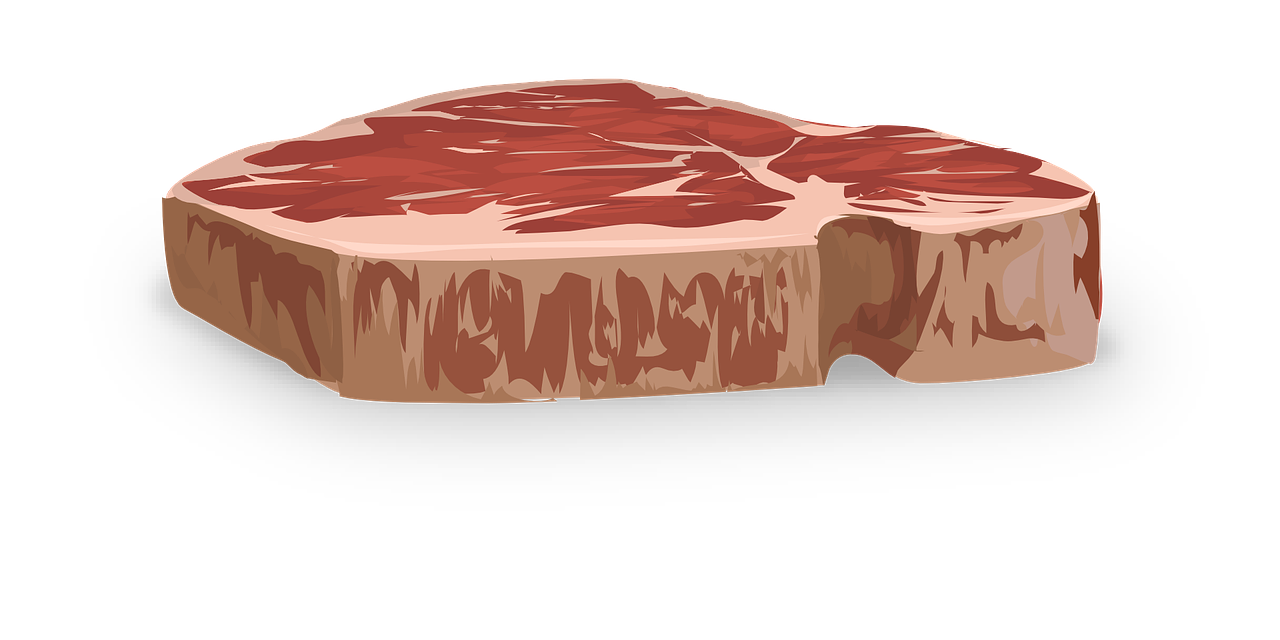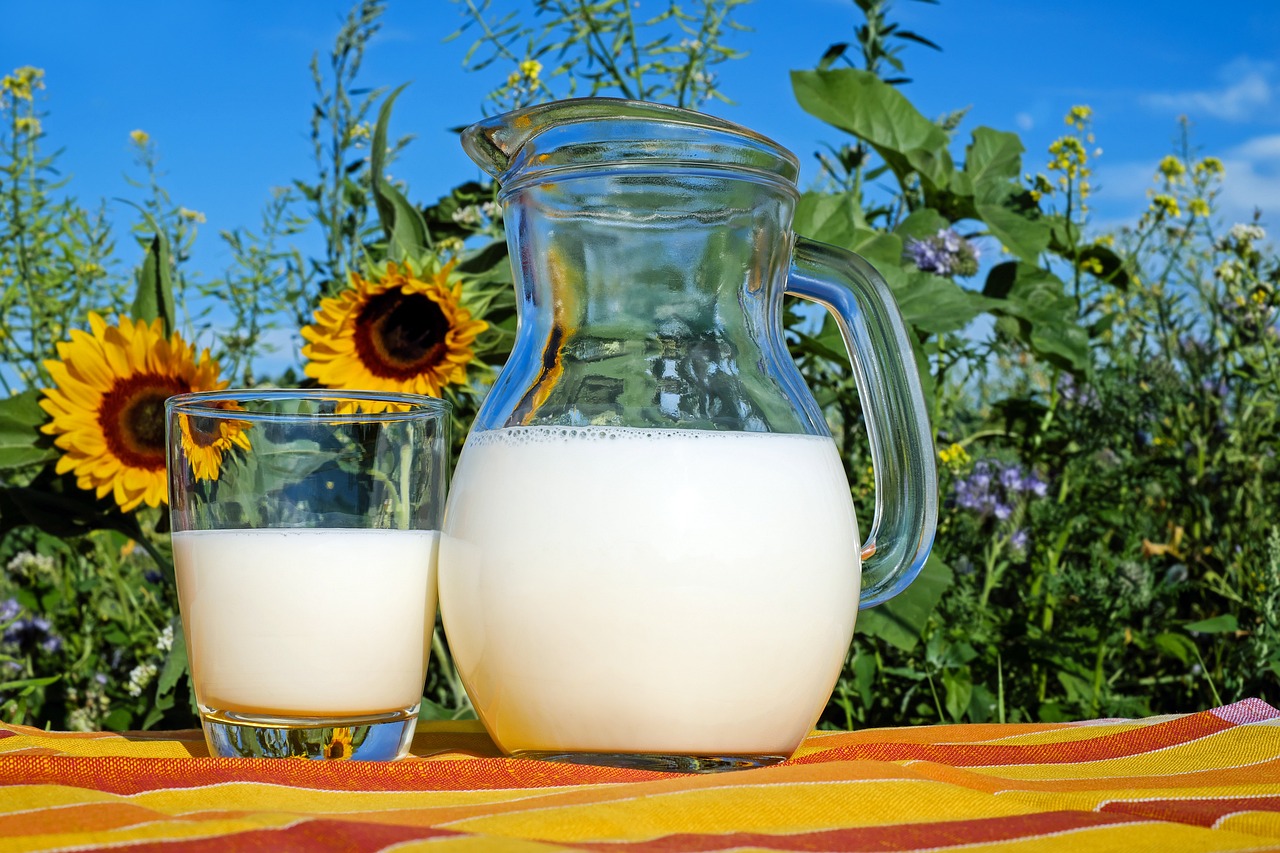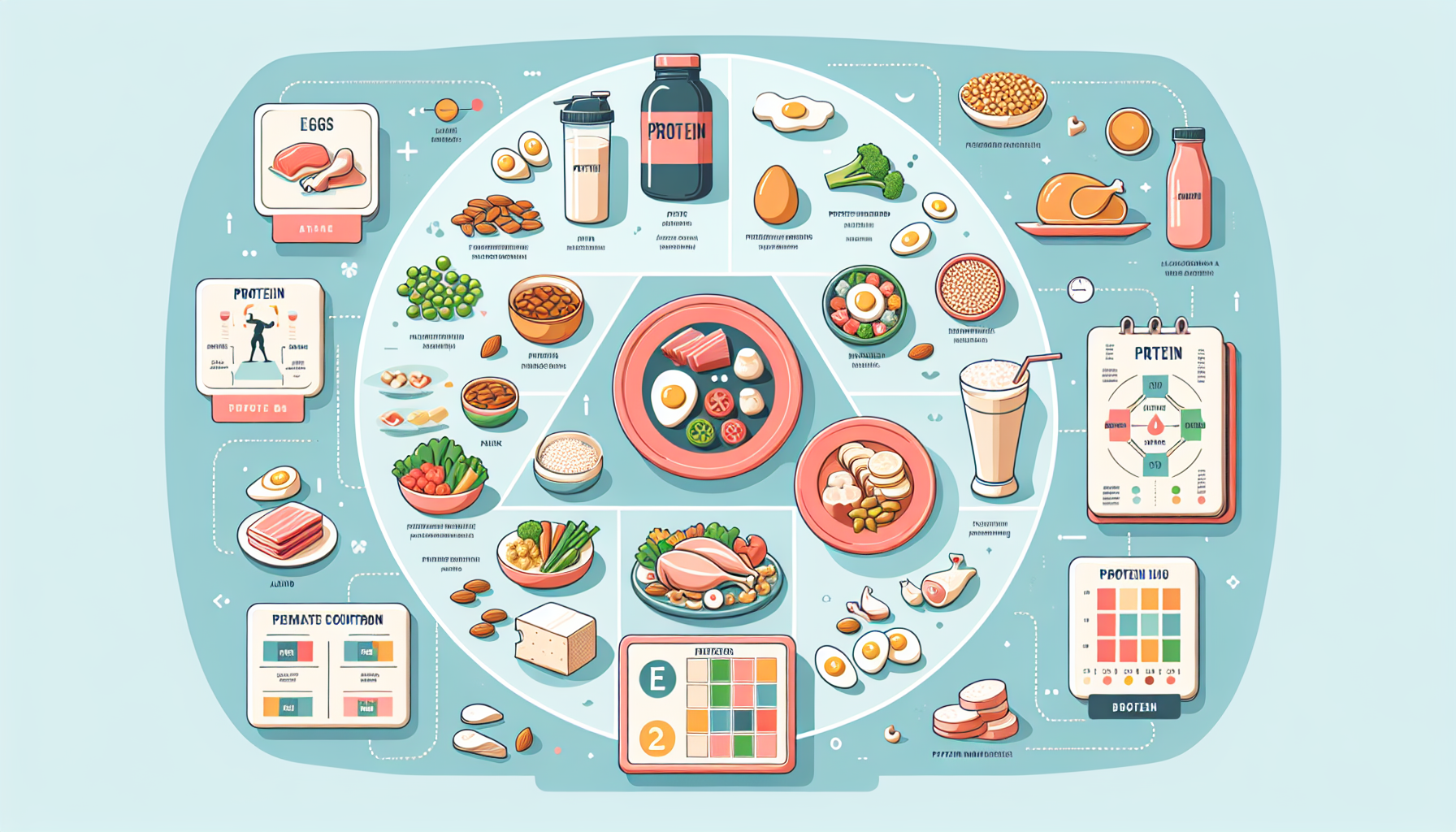Are you looking to shed those extra pounds and achieve your weight loss goals? Look no further—protein is here to be your best friend in this journey! In this article, we will explore the various reasons why protein is essential for weight loss and provide you with some helpful tips and tricks along the way. From boosting your metabolism to increasing feelings of fullness, protein has a multitude of benefits that can support your weight loss efforts. However, it’s important to remember that every individual’s dietary needs are different, so be sure to consult a healthcare professional before making any significant changes to your diet or exercise routine. So, let’s dive into the world of protein and discover how it can help you achieve the body you’ve always wanted!

Discover the Ultimate Weight Loss Secrets Here!
Introduction
What is protein?
Protein is one of the essential macronutrients that our bodies need for growth, repair, and overall functioning. It is made up of amino acids, which are the building blocks of our body’s cells, tissues, and organs. Protein plays a crucial role in various bodily functions, such as repairing damaged tissues, producing enzymes and hormones, and supporting the immune system.
How does protein aid in weight loss?
Protein is not just beneficial for muscle building; it can also aid in weight loss. Including an adequate amount of protein in your diet can help suppress your appetite, boost metabolism, and increase feelings of fullness. When you consume protein-rich foods, your body uses more energy to digest and metabolize them compared to carbohydrates and fats, leading to a higher calorie burn. Additionally, protein helps preserve lean muscle mass while promoting fat loss, which is vital for sustaining weight loss in the long run.
Choosing the right protein sources
Animal-based proteins
Animal-based proteins are excellent sources of protein as they provide all the essential amino acids that our bodies need. Foods like lean meats, poultry, fish, eggs, and dairy products are rich in high-quality protein. These proteins are readily absorbed by the body and have a complete amino acid profile, making them ideal for supporting muscle growth and repair. However, it is important to choose lean cuts of meat and low-fat dairy options to avoid excess saturated fat and cholesterol intake.
Plant-based proteins
If you follow a vegetarian or vegan lifestyle, there are plenty of plant-based protein options available to you. Plant-based proteins include legumes (such as beans, lentils, and chickpeas), tofu, tempeh, seitan, edamame, quinoa, and certain grains and vegetables. While plant-based proteins may not provide all the essential amino acids on their own, combining different plant-based protein sources throughout the day can ensure you get a complete protein profile. These protein-rich plant foods also offer additional benefits like fiber, vitamins, minerals, and phytonutrients.
Click Here for Proven Fat-Burning Strategies!
Protein-rich foods for weight loss
Lean meats
Lean meats, such as skinless chicken, turkey, and lean cuts of beef or pork, are excellent sources of protein. They are low in fat and calories, making them an ideal choice for weight loss. These meats are not only high in protein but also provide essential nutrients like iron, zinc, and B vitamins. When preparing lean meats, opt for healthy cooking methods like grilling, baking, or broiling, and avoid deep-frying or adding excessive sauces and oils.
Fish
Fish, especially fatty fish like salmon, mackerel, and trout, are not only rich in protein but are also packed with heart-healthy omega-3 fatty acids. These omega-3 fatty acids have been shown to reduce inflammation, support brain health, and aid in weight management. Including fish in your diet can provide you with high-quality protein, essential fats, and important nutrients like vitamin D and selenium.
Eggs
Eggs are an affordable and versatile protein source that can be enjoyed in various ways. They are particularly rich in high-quality protein and contain essential vitamins and minerals like vitamin B12, vitamin D, and choline. Contrary to popular belief, the yolk is where most of the nutritional value lies, so don’t shy away from consuming whole eggs. Incorporating eggs into your breakfast or using them in salads, omelets, or sandwiches can help increase your protein intake.
Dairy products
Dairy products like milk, yogurt, and cheese are not only delicious but also packed with protein and other essential nutrients. Greek yogurt, in particular, is a great choice as it contains more protein and less sugar compared to regular yogurt. Cottage cheese is another low-fat dairy product that is high in protein and can be enjoyed as a snack or added to salads or smoothies. However, if you are lactose intolerant or follow a vegan diet, there are a variety of non-dairy alternatives available, such as almond milk, soy milk, and vegan cheeses and yogurts.
Legumes
Legumes, including beans, lentils, chickpeas, and peas, are an excellent source of plant-based protein. They are also high in fiber, which can aid in digestion and promote feelings of fullness. Legumes offer a wide range of options for incorporating protein into your diet, whether you enjoy them in soups, stews, salads, or even as the main ingredient in plant-based dishes like falafel or vegetarian chili. They are not only nutritious but also affordable and sustainable options.
Nuts and seeds
Nuts and seeds are not only delicious but also provide a good amount of protein, healthy fats, and fiber. Almonds, walnuts, peanuts, chia seeds, flaxseeds, and hemp seeds are all excellent choices for increasing your protein intake. Including a handful of nuts or seeds as a snack or adding them to your salads, smoothies, or oatmeal can help you meet your protein requirements while providing other essential nutrients like vitamin E, magnesium, and antioxidants.
Including protein in your meals
Start your day with a protein-packed breakfast
Starting your day with a protein-packed breakfast can help keep you full and energized throughout the morning. Opt for options like omelets or scrambled eggs with vegetables, Greek yogurt topped with fruits and nuts, or a protein smoothie made with protein powder and fruit. Including protein in your breakfast not only supports weight loss but also helps control cravings and prevents unhealthy snacking later in the day.
Protein-rich snacks
Choosing protein-rich snacks can help curb hunger between meals and prevent overeating. Snacks like Greek yogurt, cottage cheese, mixed nuts, protein bars, or roasted chickpeas can provide a satisfying and nutritious pick-me-up. Pairing protein snacks with fruits, vegetables, or whole grains can create a well-rounded snack that balances different food groups.
Protein in lunch and dinner
Including protein in both your lunch and dinner is essential for maintaining a balanced diet and supporting weight loss goals. For lunch, consider options like grilled chicken or tofu salads, lentil or bean-based soups, or lean meat or fish with a side of vegetables and a whole grain like quinoa or brown rice. Similarly, for dinner, focus on dishes that incorporate protein, such as stir-fries with lean meats or tofu, fish with roasted vegetables, or plant-based protein alternatives like tempeh or seitan.

Unlock Your Path to a Healthier You!
Protein supplements for weight loss
When are protein supplements beneficial?
Protein supplements can be beneficial for those who struggle to meet their daily protein requirements through whole food sources alone, such as individuals following a vegetarian or vegan diet or those with high protein needs due to intense physical activity or medical conditions. Protein supplements can also be convenient options for post-workout recovery when whole food sources may not be readily available or easily digested.
Types of protein supplements
There are various types of protein supplements available on the market, with the most common ones being whey protein, casein protein, soy protein, and plant-based protein powders (such as pea protein, rice protein, or hemp protein). Whey protein, derived from milk, is popular due to its complete amino acid profile and quick absorption. Casein protein, also derived from milk, is slower to digest and provides a more prolonged release of amino acids, making it ideal for overnight recovery. Soy protein is a plant-based option that is often used by vegetarians and vegans, while plant-based protein powders cater to those with specific dietary restrictions or preferences.
Choosing the right protein supplement
When choosing a protein supplement, consider factors like personal dietary needs, taste preferences, and any allergies or intolerances you may have. Read the ingredient list and nutritional information to ensure that the protein supplement aligns with your goals and requirements. It’s also a good idea to consult with a registered dietitian or healthcare professional to determine the most appropriate protein supplement for you.
Protein and exercise
Pre-workout protein
Consuming protein before a workout can help provide the necessary energy and support muscle protein synthesis during and after exercise. Opt for easily digestible protein sources like a protein shake, Greek yogurt, or a small serving of lean meat or tofu. Including carbohydrates along with protein can further increase glycogen stores and enhance performance during your workout.
Post-workout protein
Consuming protein after a workout is essential for muscle recovery and growth. Consuming a combination of protein and carbohydrates within 30-60 minutes after exercise can enhance glycogen replenishment and accelerate muscle repair. Good post-workout protein sources include protein shakes, lean meats, fish, eggs, or a combination of plant-based options like legumes, tofu, or quinoa.
Protein for muscle recovery
Protein plays a critical role in muscle recovery and repair after intense physical activity. It helps repair muscle damage caused by exercise and promotes the synthesis of new muscle proteins. Consuming an adequate amount of protein throughout the day, especially after workouts, can support muscle recovery, reduce muscle soreness, and improve overall exercise performance.

Meal planning with protein
Calculating your protein needs
Calculating your protein needs is important to ensure you are consuming an adequate amount for your individual requirements. The recommended daily protein intake varies based on factors such as age, gender, weight, activity level, and goals. As a general guideline, aim to consume around 0.8 to 1 gram of protein per kilogram of body weight. However, athletes or those engaging in intense physical activity may need higher amounts, ranging from 1.2 to 2 grams per kilogram of body weight. Consulting a registered dietitian can provide personalized guidance based on your specific needs.
Creating a balanced meal plan
Creating a balanced meal plan that includes protein is crucial for meeting your weight loss goals and overall health. Aim to distribute protein intake evenly throughout the day, including it in each meal and snack for optimal muscle synthesis and appetite control. Plan meals that combine lean proteins, whole grains, fruits, vegetables, and healthy fats for a well-rounded and nourishing diet. Remember to also incorporate a variety of protein sources to ensure you receive a spectrum of amino acids and essential nutrients.
Meal prep and protein
Meal prepping is an excellent strategy to ensure you have protein-rich meals readily available throughout the week. Cook large batches of lean meats, legumes, or tofu that can be portioned and used in salads, stir-fries, or wraps. Hard-boiled eggs, Greek yogurt, and chopped fruits or vegetables can be prepared ahead of time for quick and easy protein-rich snacks. By taking the time to meal prep, you can save time, make healthier choices, and stay on track with your weight loss journey.
Protein and appetite control
Protein’s effect on appetite
Protein has been shown to have a significant impact on appetite control. It helps increase feelings of fullness and satiety, reducing the likelihood of overeating or snacking on unhealthy foods. This is due to protein’s effect on appetite-regulating hormones, such as ghrelin and peptide YY, which play a role in hunger and fullness signals. Including protein in meals and snacks can help you feel satisfied for longer periods, preventing unnecessary calorie consumption and aiding in weight loss.
Protein and satiety
Protein-rich foods have been found to be more satiating than carbohydrates or fats. This means that consuming protein can help you feel more satisfied and reduce the desire to eat excessively. Including protein in your meals can help stabilize blood glucose levels, regulate hunger hormones, and ultimately lead to better appetite control. By choosing protein-rich options, you can steer clear of frequent snacking, manage portion sizes, and maintain a healthy calorie intake.

How much protein is enough?
Recommended daily protein intake
The recommended daily protein intake varies depending on factors such as age, gender, weight, and activity level. For the average sedentary adult, the recommended daily protein intake is about 0.8 grams of protein per kilogram of body weight. However, individuals engaging in regular exercise or looking to lose weight may benefit from higher protein consumption, ranging from 1.2 to 2 grams per kilogram of body weight. It’s important to speak with a registered dietitian or healthcare professional to determine your specific protein needs.
Factors affecting protein needs
Several factors can affect an individual’s protein needs. These include age, gender, weight, body composition, level of physical activity, and overall health. For example, athletes or individuals participating in intense exercise routines may require higher protein intake to support muscle repair and recovery. Pregnant or breastfeeding women also have increased protein needs to support the growth and development of the baby. Additionally, certain medical conditions or recovery from injuries may warrant higher protein intake. It’s important to consider these factors when determining your personal protein requirements.
Conclusion
As you embark on your weight loss journey, protein can be a valuable tool to support your goals. By including protein-rich foods in your meals, snacks, and even considering protein supplements, you can enhance appetite control, boost metabolism, and support muscle recovery. Remember to choose a variety of protein sources, whether animal-based or plant-based, to ensure you receive all the essential amino acids and other nutrients your body needs. However, it’s crucial to consult a health professional, such as a registered dietitian, before making any significant changes to your diet or exercise routine. They can provide personalized guidance based on your individual needs, helping you make informed decisions on your weight loss journey.
